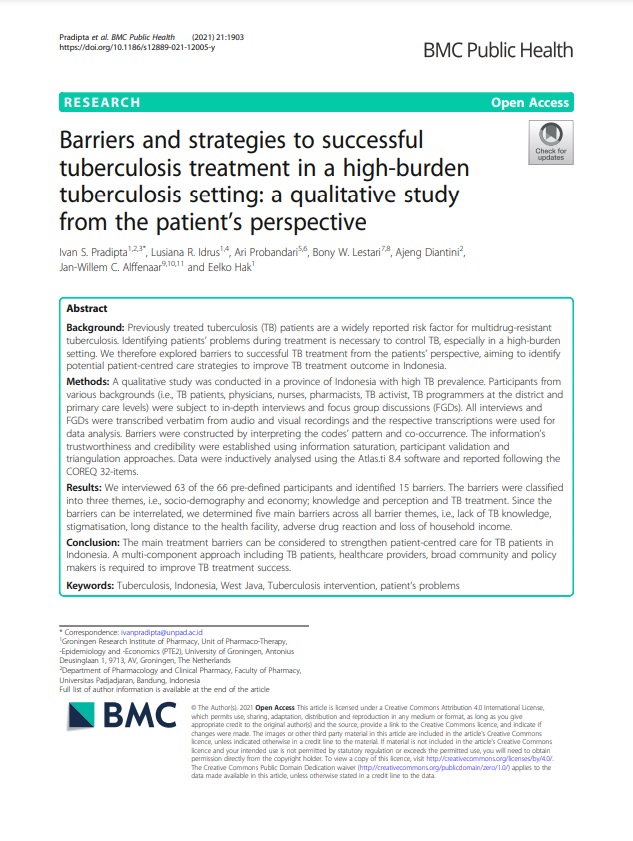Abstract
Background: Previously treated tuberculosis (TB) patients are a widely reported risk factor for multidrug-resistant
tuberculosis. Identifying patients’ problems during treatment is necessary to control TB, especially in a high-burden
setting. We therefore explored barriers to successful TB treatment from the patients’ perspective, aiming to identify
potential patient-centred care strategies to improve TB treatment outcome in Indonesia.
Methods: A qualitative study was conducted in a province of Indonesia with high TB prevalence. Participants from
various backgrounds (i.e., TB patients, physicians, nurses, pharmacists, TB activist, TB programmers at the district and
primary care levels) were subject to in-depth interviews and focus group discussions (FGDs). All interviews and
FGDs were transcribed verbatim from audio and visual recordings and the respective transcriptions were used for
data analysis. Barriers were constructed by interpreting the codes’ pattern and co-occurrence. The information’s
trustworthiness and credibility were established using information saturation, participant validation and
triangulation approaches. Data were inductively analysed using the Atlas.ti 8.4 software and reported following the
COREQ 32-items.
Results: We interviewed 63 of the 66 pre-defined participants and identified 15 barriers. The barriers were classified
into three themes, i.e., socio-demography and economy; knowledge and perception and TB treatment. Since the
barriers can be interrelated, we determined five main barriers across all barrier themes, i.e., lack of TB knowledge,
stigmatisation, long distance to the health facility, adverse drug reaction and loss of household income.
Conclusion: The main treatment barriers can be considered to strengthen patient-centred care for TB patients in
Indonesia. A multi-component approach including TB patients, healthcare providers, broad community and policy
makers is required to improve TB treatment success.
Keywords: Tuberculosis, Indonesia, West Java, Tuberculosis intervention, patient’s problems
